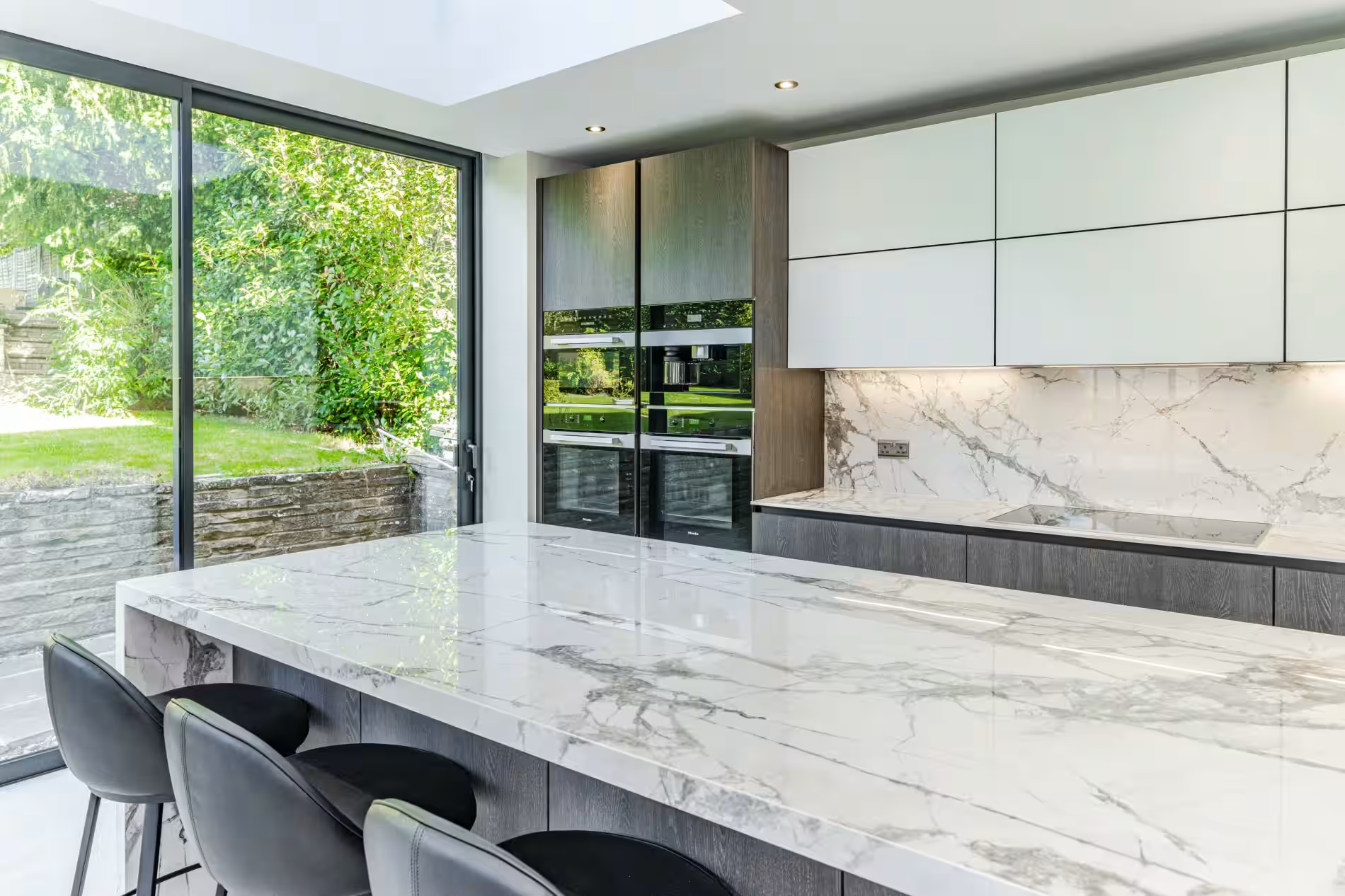After the pandemic, a boom in the flagging home extension market saw an increased demand for multifunctional spaces (e.g., second rooms doubling as studies), outdoor office spaces, and a new trend towards open plan living.
As well as this, a home extension also offers homeowners who want to sell their home a unique opportunity to recoup equity in the middle of unfavourable market conditions.
Our ultimate guide to home extensions will go over everything you need to know before deciding whether or not to make the jump yourself.
First steps: planning your house extension
A house extension is a big project that can seem daunting at first, but that will soon turn to excitement once you get planning.
- Intended use. Think about what purpose the extension serves. Do you want an extra bedroom, a playroom, home office, or simply more space?
- Exterior and interior design Next, consider the design and layout of your extension. Will it be a single storey or two storey extension? Will it have a roof or be open to the sky? Will it be attached to the main house or be a separate building? Depending on the type of extension, it is likely that you will need to draw up your building plans and submit them to your local planning authority for approval (more on this later).
- Assemble the dream team. After the initial brainstorming about spatial requirements and usage, it’s time to call in the specialists to design and execute your dream house extension. You’ll need an architect, structural engineer, and builder (or builders).
Key factors to consider
Now that your home extension vision has been fleshed out, the next step is to ground your ideas in reality. The following five key points are designed to help you judge the feasibility of your extension proposal and help you to avoid any nasty surprises.
The bigger picture
Your surroundings
Your environment
Neighbouring properties
Property type
How long do house extensions take?
A house extension can be exciting, especially when you’re in the planning and brainstorming stage, but it’s important to remember that it’s also a significant commitment, both in terms of time and finances.
The length of your house extension project depends on a number of factors, including:
- The size and complexity of the extension
- Time of year (winter projects tend to take longer)
- Availability of architects, engineers, and contractors
- Access and availability to building supplies
- Time for planning permission to be granted
- Time to complete the building work.
Generally speaking, a house extension can take anywhere from three months for a simple, three-metre rear extension to six to nine months for a larger scale extension, and over a year for the biggest extension projects to be completed.

How much will a house extension cost?
There’s no definitive answer to this question, as house extensions vary widely not only in size and complexity but also in the types of materials involved. Remember, too, that the cost of labour and materials are always changing based on fluctuations in the economy, so two identical extensions five years apart could cost two vastly different figures.
One thing is for certain, though – you’ll want to consider the following factors when calculating an extension budget:
- Architect fees.
- Structural engineer fees.
- Builder fees.
- Interior designer and/or project manager fees (optional).
- Furnishing.
- Pavement or driveway amendments, if applicable.
- Material costs.
- Building control body (BCB) fees.
- Insurance costs.
How much does an extension add to the value of a house?
Much like the above, the value the final extension adds to your house depends on a variety of factors. It isn’t just about the size of the extension – though this is a key part of it – but also about its desirability and usefulness to prospective homeowners. As ever, location and market conditions will also impact the value an extension adds to your property.
According to Checkatrade, different types of extensions will yield different added value to your property:
- Conservatory – 5-7%
- Single-storey extension – 5-8%
- Double-storey extension – up to 12%
- Garage conversion – 10-20%
- Loft conversion – up to 20%
Planning permissions
The process for extending a house will vary depending on the size and scope of the planned extension – as well as the planning regulations in place – but generally you will first need to submit a planning application to your local council. The council will assess your application based on its feasibility, adherence to planning regulations, and may also survey your neighbours to garner their opinions on the matter.
It’s worth noting, however, that not all extensions require planning permission; this is called permitted development. Find out whether your proposal falls under permitted development here.
Getting a building permit
Regardless of whether or not your extension falls under permitted development, you will most likely need to acquire a building permit, which is different from obtaining planning permission. A building permit is about making sure that your extension meets certain safety and energy efficiency standards.
Insurance, insurance, insurance
At Stanhope, we’ve noticed that many of our clients who are interested in a home extension have been told that their builder has enough insurance to cover them, but we’d like to clarify that this simply might not be the case.
We not only recommend that you get your own insurance to cover your home extension, but also that you get insured before the commencement of any construction work.
This will cover your extension not only for the usual, like subsidence, flooding, and storms, etc, but also for any damage caused during the construction process, e.g., by a contractor or during transit of materials.
Your insurance will also cover you for any liability incurred during the extension building process. Imagine what would happen if a contractor accidentally damaged a neighbour’s wall or installed a new roof and the tiles fell off and injured someone – your insurance would cover you for the costs associated with liability.
For more information on Stanhope house extension insurance, visit our house renovation and extension insurance page or call our friendly insurance specialist team on 01730 778977.
Get a quote now
Fully understood our risk needs and always available when needed. First class service.
5 Star Review ReviewsIO
Sources
https://www.checkatrade.com/blog/expert-advice/extension-add-value-house

